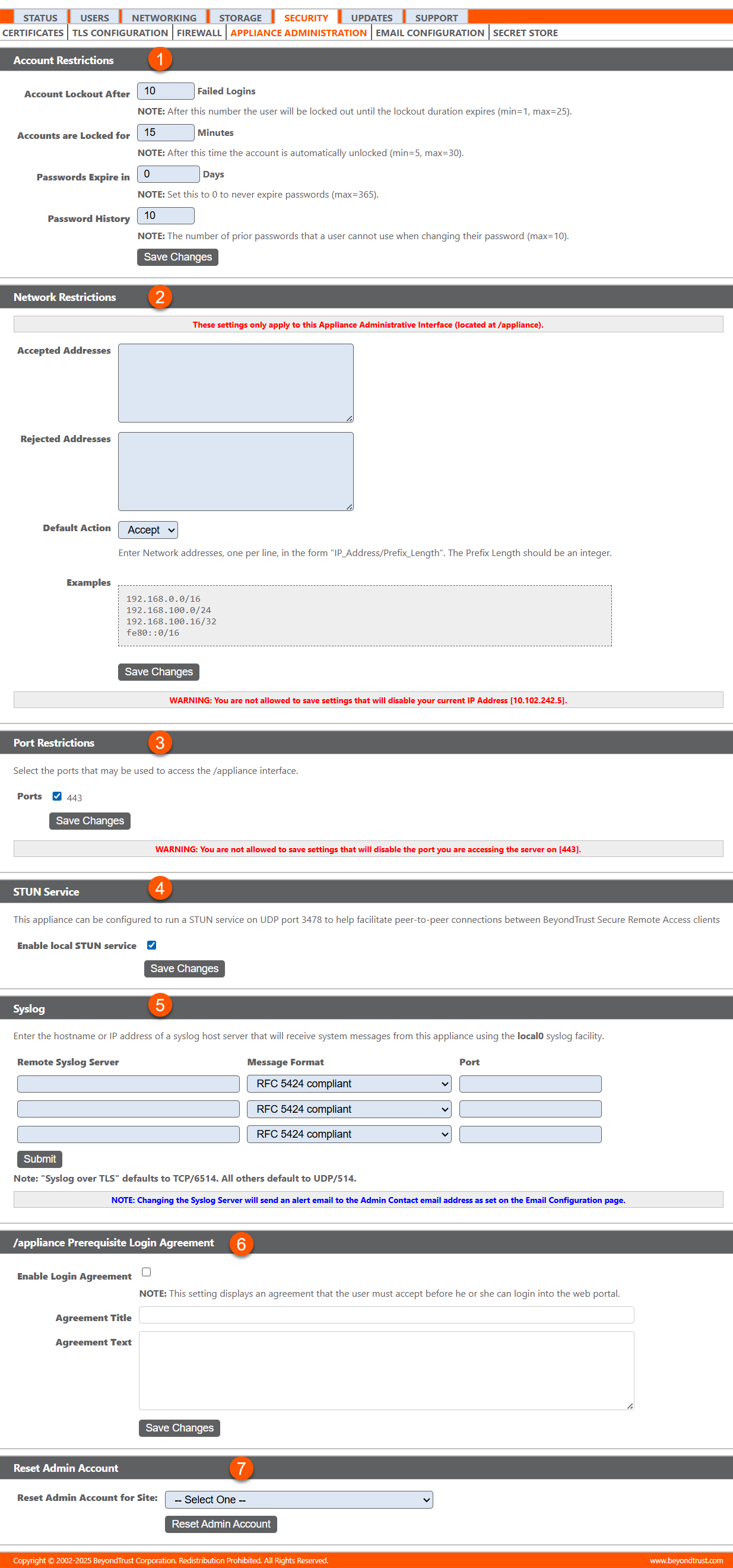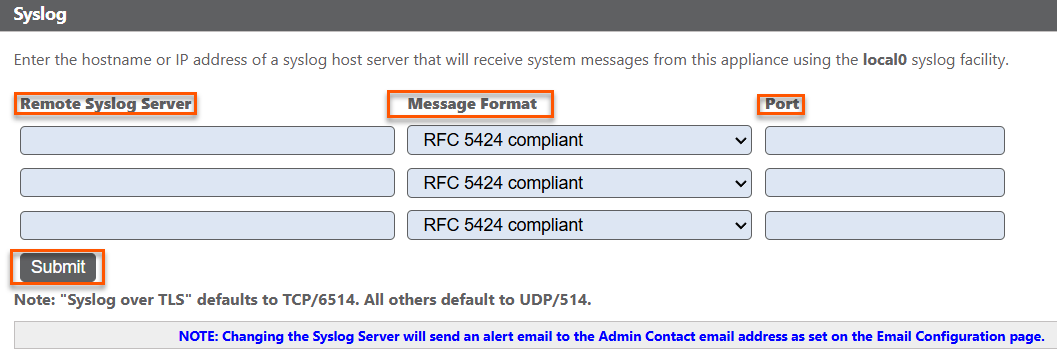Appliance administration | RS Cloud
What is the Appliance Administration page?
The Appliance Administration page in the /appliance web interface provides tools for configuring syslog settings on the B Series Appliance in the cloud version.
How is it useful to my organization?
This page allows administrators to configure syslog settings to integrate with external log management systems, aiding in centralized logging and troubleshooting.
How do I access the Appliance Administration page?
- Use a Chromium-based browser to sign in to your B Series Appliance. The URL is provided in the BeyondTrust welcome email and includes your site URL followed by /appliance.
- From the top menu, click Security.
The Certificates page opens and displays by default. - At the top of the page, click Appliance Administration.
The Appliance Administration page displays.

- Account Restrictions: Settings to account restrictions.
- Network Restrictions: Settings to network restrictions.
- Port Restrictions: Settings to port restrictions.
- STUN Service: Configure a STUN Service for the appliance.
- Syslog: Configure syslog server for messages that the appliance can receive.
- /appliance Prerequisite Login Agreement: Settings for login agreement.
- Reset Admin Account: Resets Admin account.
Configure appliance administration
Configure B Series Appliance to send log messages
You can configure your B Series Appliance to send log messages to up to three syslog servers.
- Enter the hostname or IP address of the syslog host server receiving system messages from this B Series Appliance in the Remote Syslog Server field.
- Select the Message Format for the event notification messages.

Choose from the standards specification RFC 5424, one of the legacy BSD formats, or Syslog over TLS. Syslog over TLS defaults to using TCP port 6514. All other formats default to using UDP 514. However, the defaults can be changed. BeyondTrust Appliance B Series logs are sent using the local0 facility.
- When changing or adding a syslog server, an alert is emailed to the administrator's email address. The administrator's information is configured at Security > Email Configuration > Security :: Admin Contact.
- For a detailed syslog message reference, see the Syslog message reference.
Updated 15 days ago
